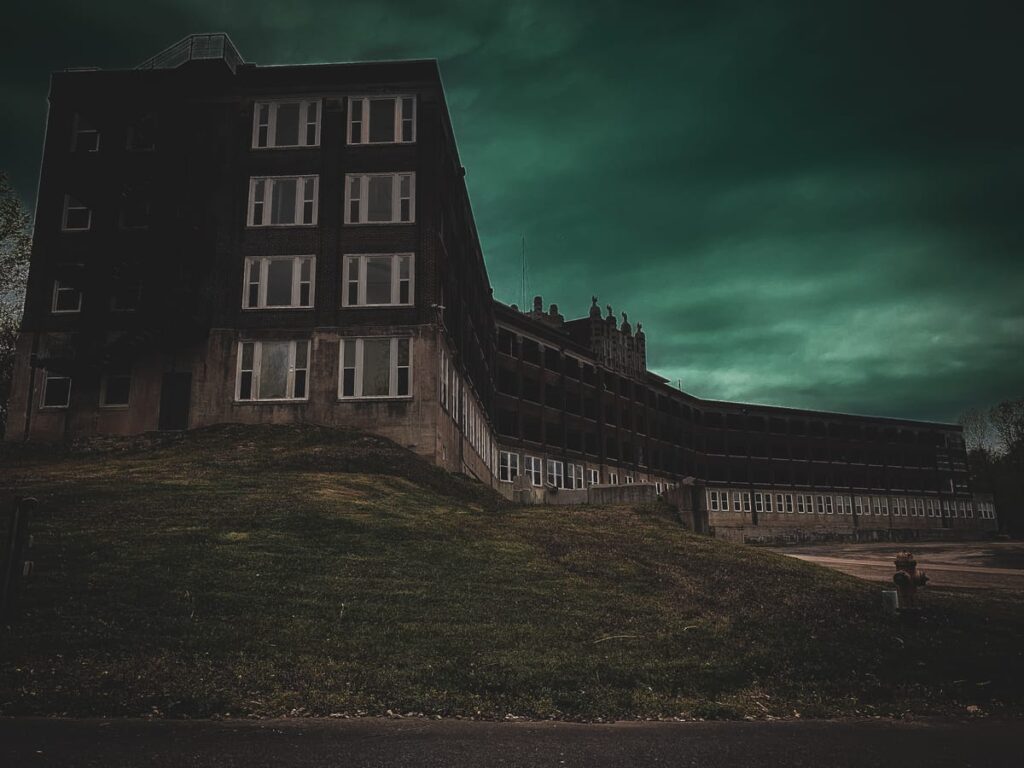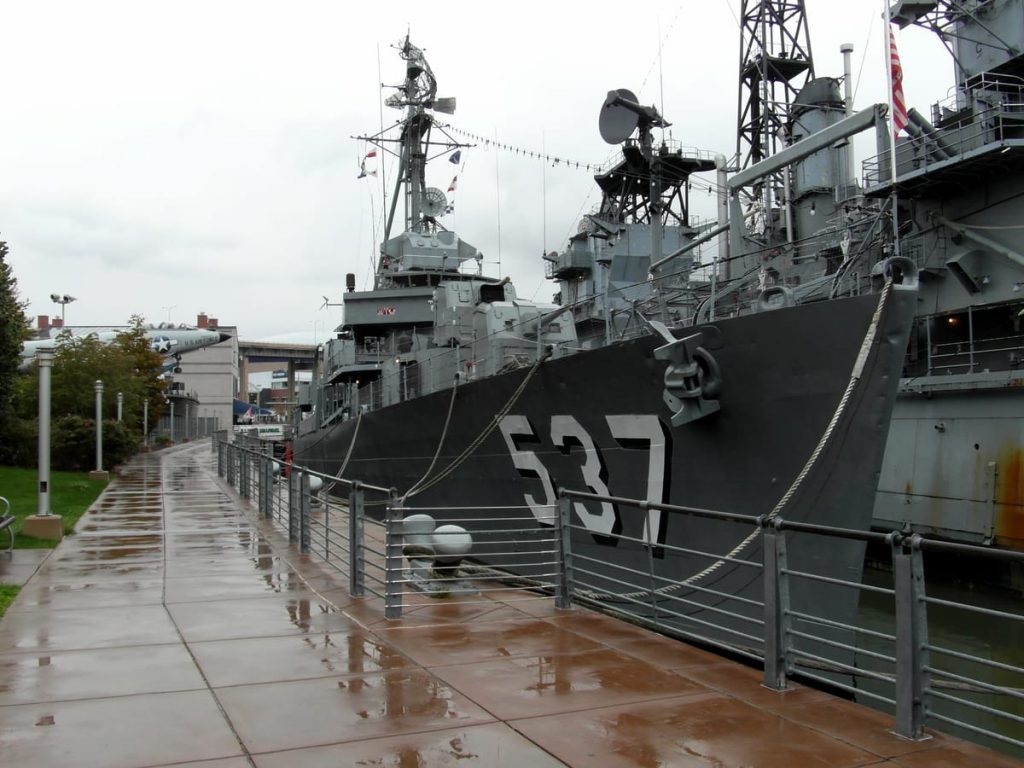
USS The Sullivans
This World War II destroyer-turned-museum reportedly houses the ghosts of its namesake brothers
Haunting Encounters on
USS The Sullivans
- A shadow figure is sometimes seen slowly patrolling the decks
- Radios are known to turn on without reason and broadcast strange static
- Lights frequently flicker on-and-off by themselves
- Strange beeps, like radar sounds, are often heard in strange areas around the ship
- Electrical equipment is often found turned on without explanation
- A memorial photo on board is said to never have a clear picture taken of it due to spiritual distortion
USS The Sullivans &
Buffalo’s Historic Fleet
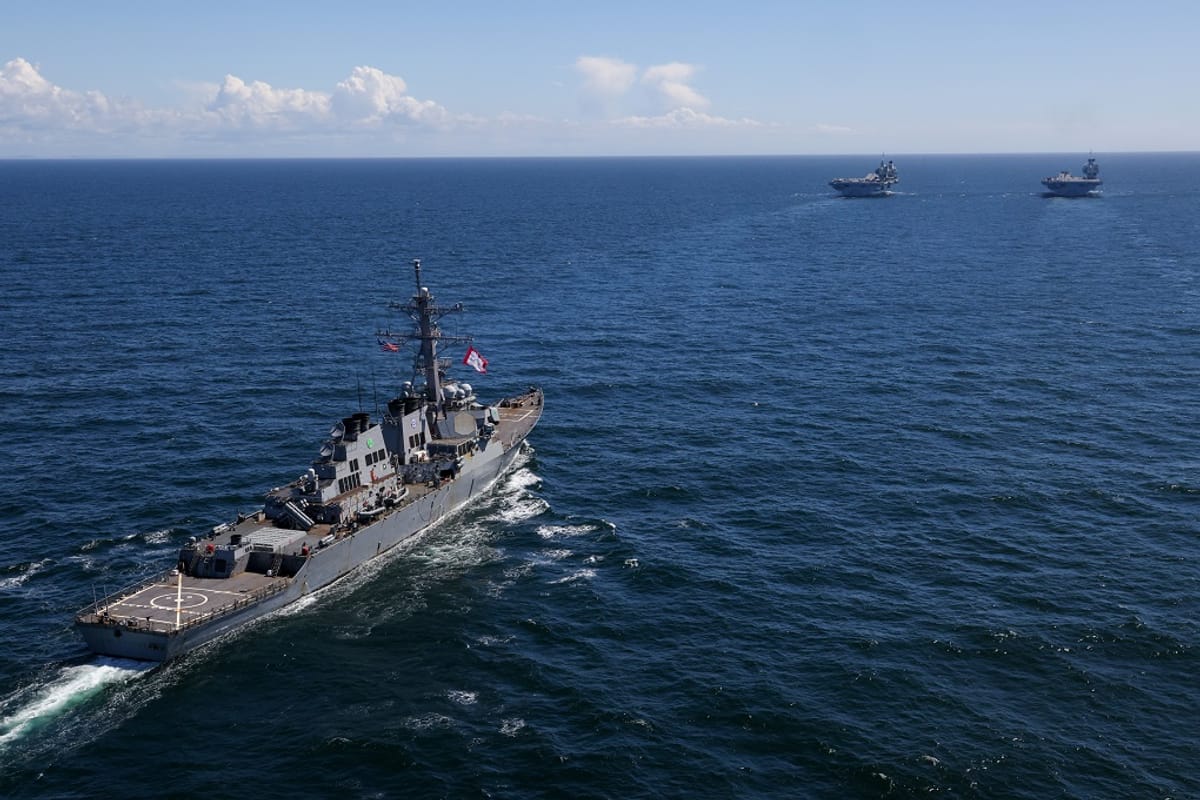
Though visitors to the Buffalo Naval and Servicemen’s Park may be drawn to the USS Little Rock, the largest vessels on display, or to the submarine berthed nearby, the small destroyer in Little Rock’s shadow certainly deserves its share of attention. Between its long history, unique name, and memorable origin story, USS The Sullivans has many different stories to share. And there may be one or two resident spirits on board to share those stories with you.
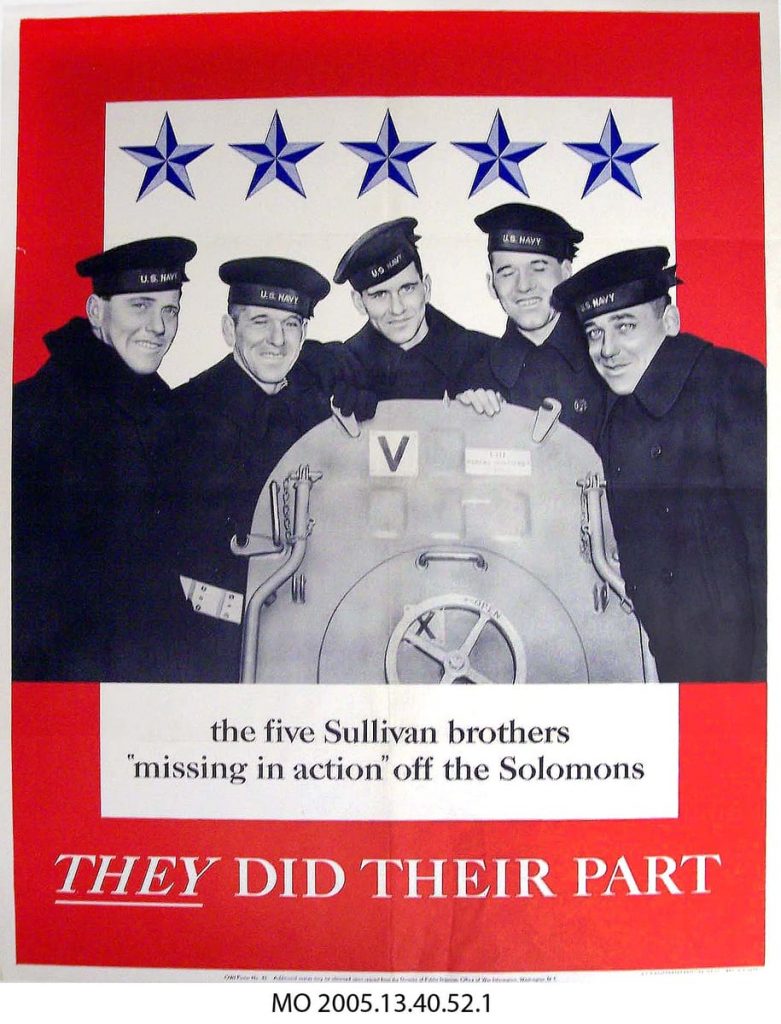
Known in their younger years as ‘The Fighting Sullivans’ for their indomitable spirits and inseparability, George, Frank, Joe, Matt, and Al Sullivan grew up doing everything together. So, when the eldest of the group joined the US Navy, it wasn’t long before all five brothers were training to be naval seamen in the early points of World War II.
The five requested assignments to the same ship to keep them together, and although the US Navy had rules against such things, they weren’t often enforced. So, all five of The Fighting Sullivans ended up assigned to service on the USS Juneau, serving dutifully until the day the ship was struck by a Japanese torpedo.
Only ten sailors survived the Juneau’s sinking, none of them being a Sullivan brother.
Timeline of USS The Sullivans's History
Swipe or use timeline points to see USS The Sullivans through the years
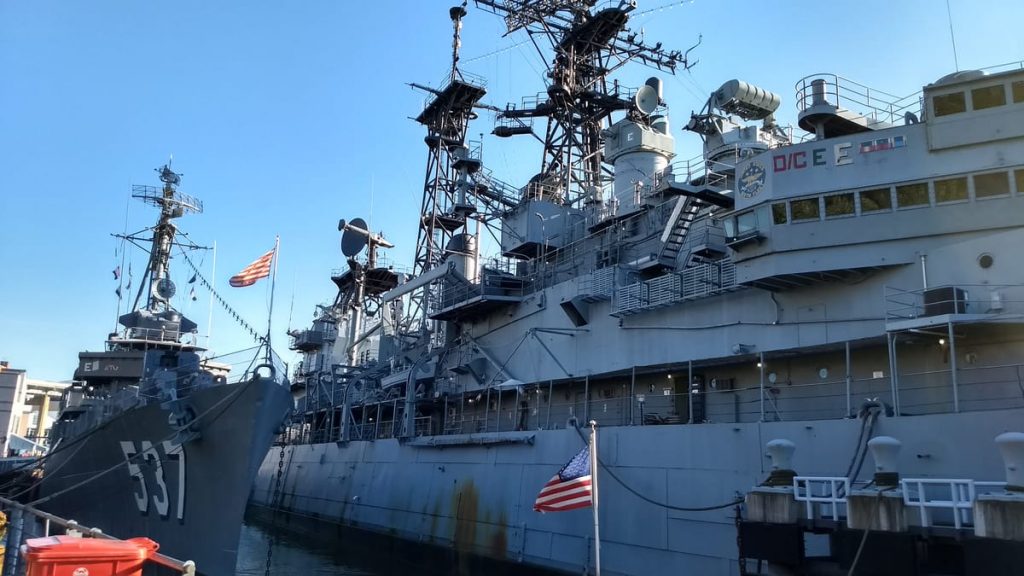
1943
In honor of the five brothers, the US Navy renamed a new ship from USS Putnam to USS The Sullivans. The destroyer launched in April, 1943, and was training off Pearl Harbor by December. She served as a carrier defender in the Battle of Kwajalein in 1944, and in Operation Hailstone shortly after. After refueling, The Sullivans returned to the Pacific where she covered USS Iowa in the bombardment of Ponape. Through the early summer of 1944, the ship fought in the Battles of Saipan and the Philippine Sea before moving to Iwo Jima in July.
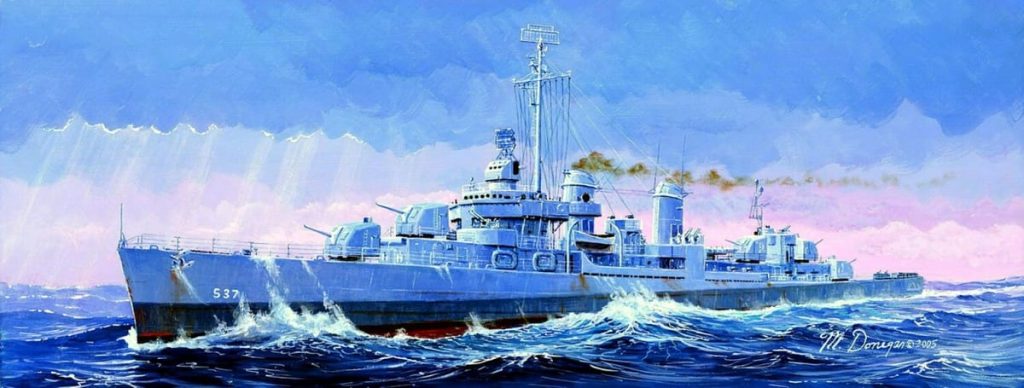
1944
USS The Sullivans continued to support aircraft carriers around the Philippines for the remainder of that year. During a December refueling pause, the ship and several others were caught up in a massive storm, Typhoon Cobra, which sank three other destroyers and killed nearly 800 sailors. The Sullivans managed to survive the storm unscathed, and took on search and rescue missions for the lost ships in the days that followed.
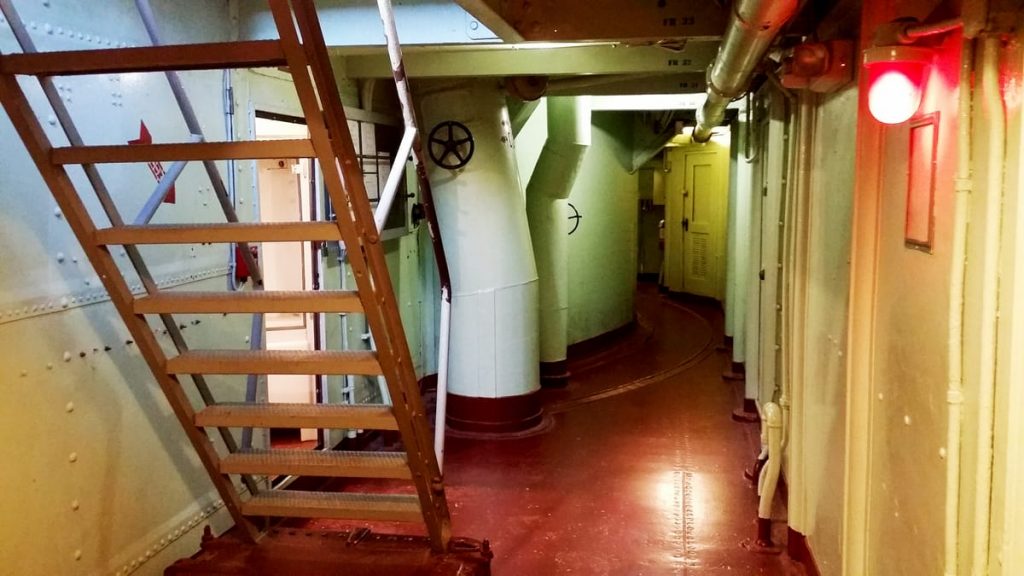
1945
In March, 1945, US forces were preparing for the invasion of Okinawa, and The Sullivans was sent to support them. On March 20, during refueling with several other ships, a kamikaze attack came down, with one plane striking the nearby USS Halsey Powell. Despite the attacks, The Sullivans and its cohorts still aided US forces at Okinawa. In future kamikaze attacks, The Sullivans would save 166 sailors after USS Bunker Hill was struck. And, as her last combat action of WWII, The Sullivans successfully downed one of these kamikaze planes.
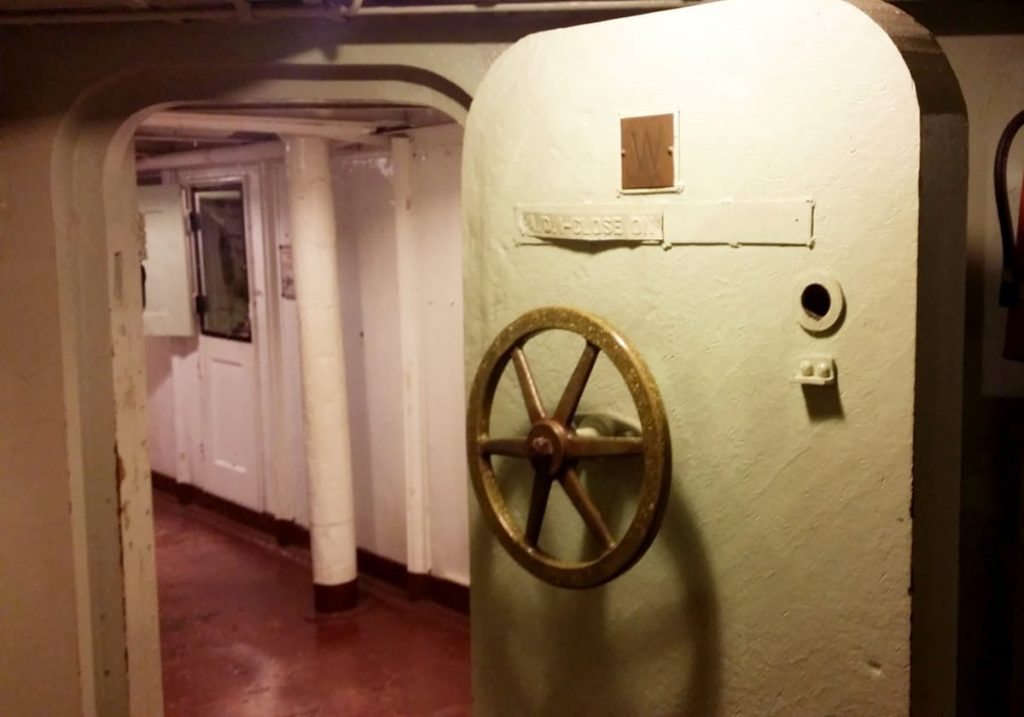
1951
After spending the last months of the war in upkeep and overhaul, USS The Sullivans was placed in the Pacific Reserve Fleet of ships, and she would spend the next few years in quiet solitude before the drums of war began to beat again. The Sullivans was formally recommissioned in July of 1951, and spent the remainder of the year and most of the next performing training exercises in the Caribbean. The ship finally made its way towards the Pacific Ocean and the Korean Theater in November, 1952.
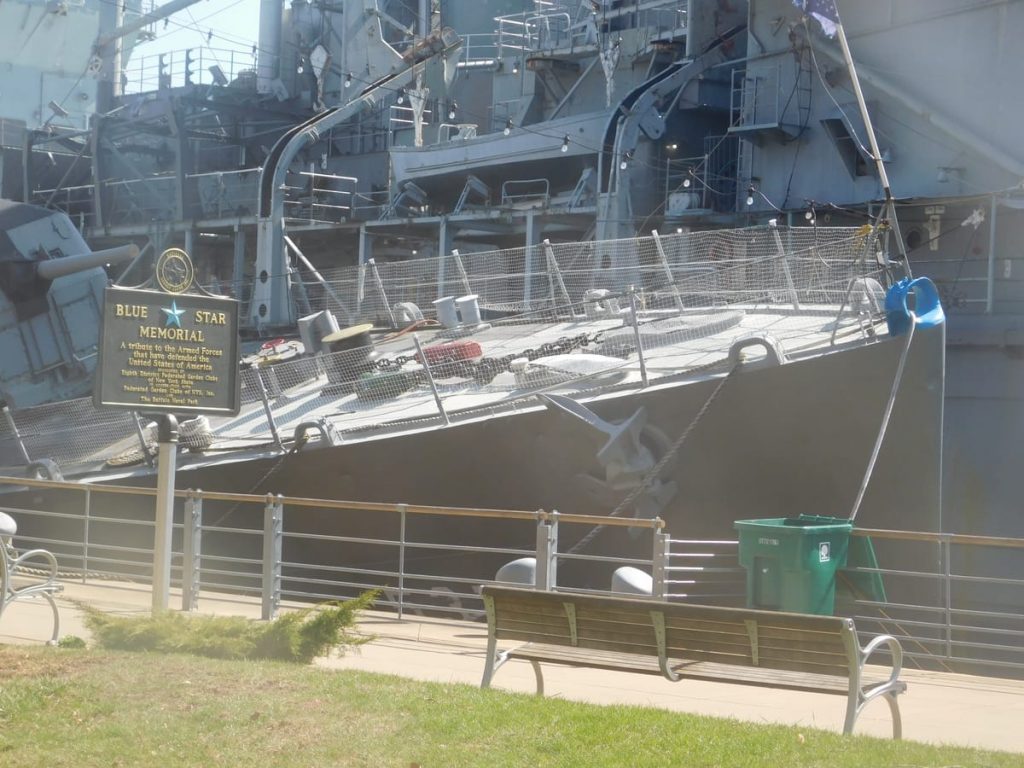
1952
She began her service in the Korean War assisting in the blockade of Korean waters by UN forces, and shortly after began bombardments of North Korean rail lines and rolling stock to cut off supply lines. On Christmas Day, 1952, she successfully destroyed a rail bridge in that area while being fired upon by Korean forces. Despite enemy fire, USS The Sullivans left the engagement untouched. She was relieved from Korean service the following month and returned to her homeport of Newport, Rhode Island, in April, 1953.
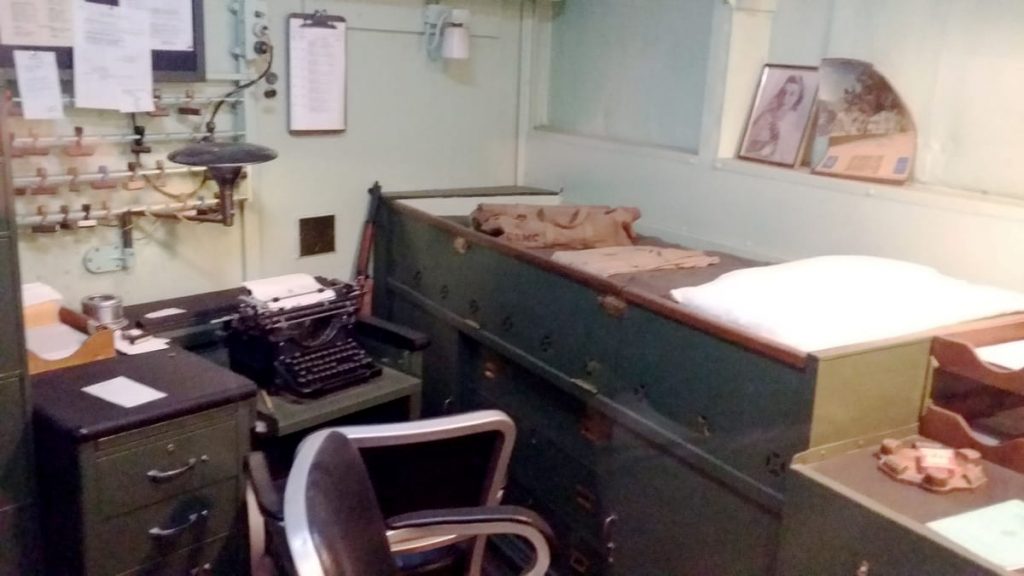
1960
Though the ship would not see active wartime service again, The Sullivans continued to serve supporting roles in training exercises in the Caribbean and Mediterranean seas throughout the 1950s. In the early 60s, The Sullivans was repurposed, first as a recovery ship for space capsules landing, and later as a schooling ship for new naval recruits learning how to work a destroyer. The ship was briefly called back into action to assist in the Cuban blockade during the Cuban Missile Crisis, but was soon back to school ship service.
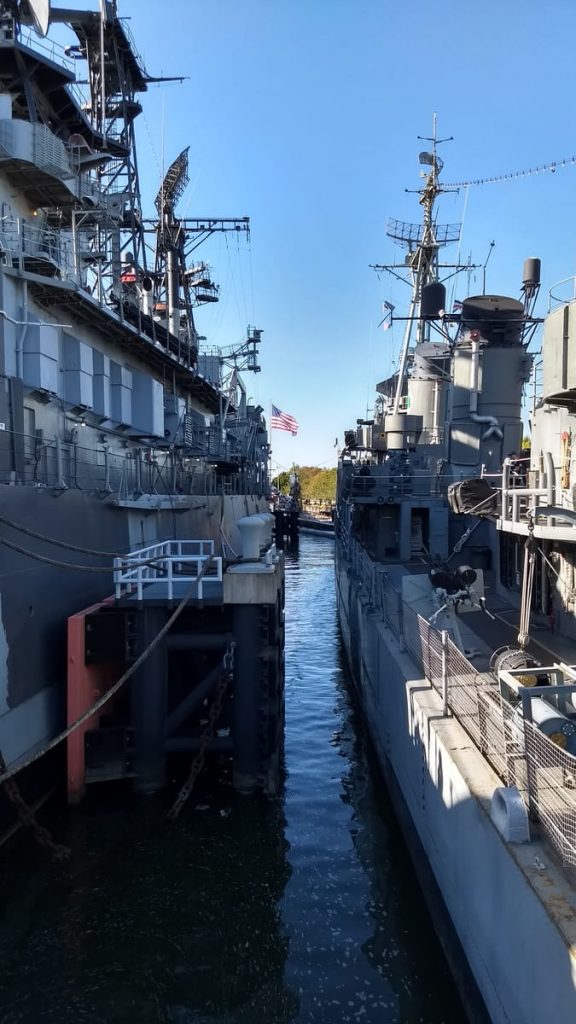
1977
In 1965, the ship was decommissioned and placed in reserve until 1977, when she and USS Little Rock were donated to the Buffalo Naval and Servicemen’s Park in Buffalo, New York, where she remains as a museum ship today. But, over her years as a museum, visitors and workers have often reported unexplainable occurrences on board. As years passed, some began to wonder whether the ship was haunted. And, recently, others have claimed the ship is not haunted by those who served on it, but rather by the young men who it memorializes.
The Burning Man on USS The Sullivans
One famed tale of a run-in with this apparition is said to have come from a former night security guard. The guard, rather than encountering a strange misty cloud, ran face-to-face into a bloodied, burned man who quickly disappeared from view.
While the guard is said to have quit shortly after, it wasn’t before he could positively identify the specter he saw from a memorial photograph on the ship.
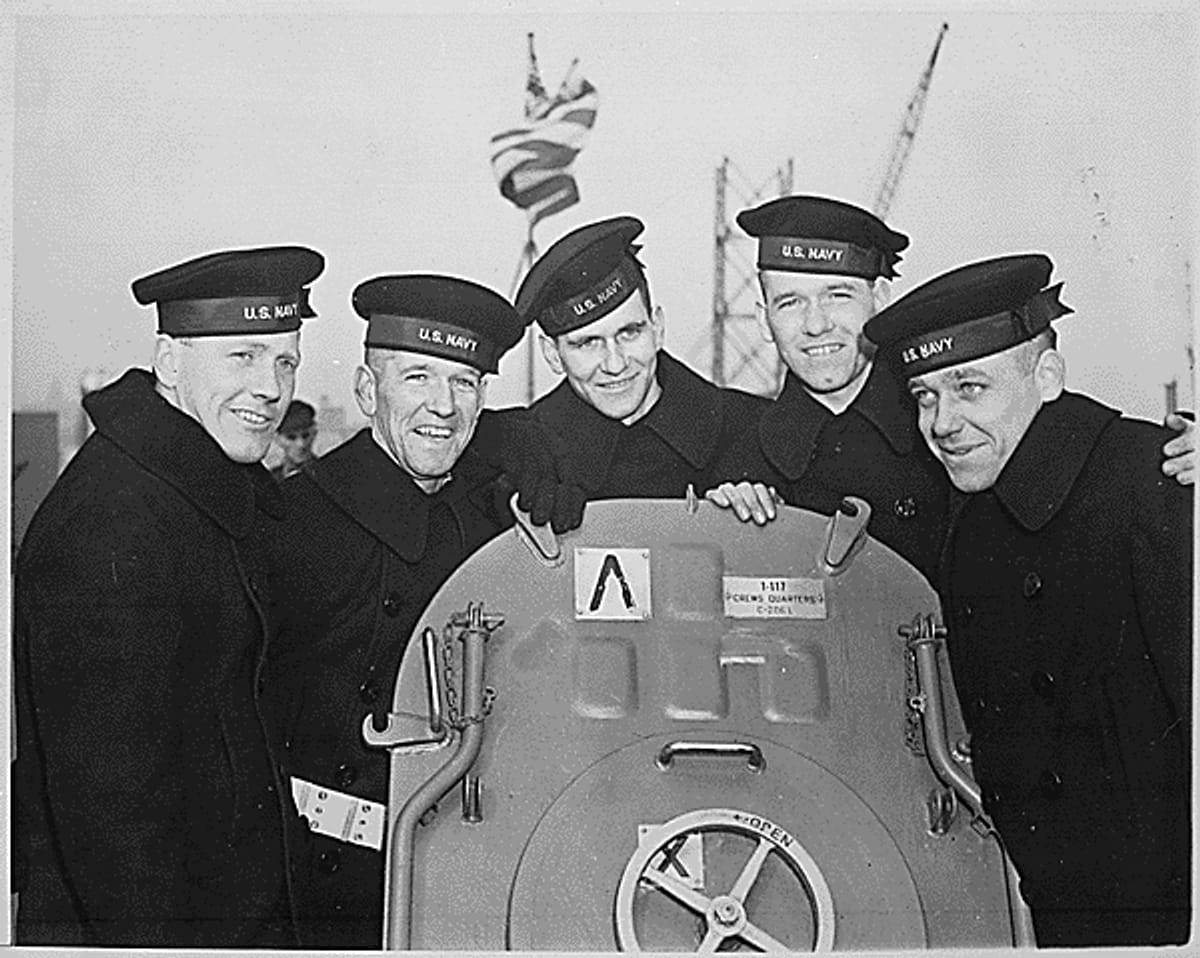
The photo is of the five Sullivan brothers who died aboard USS Juneau, and the specter was identified as George, the oldest brother and the one who survived the longest in the aftermath of Juneau’s sinking.
Further supporting this theory is that few photos of the memorial image of the brothers ever come out clearly, with it often said that George’s face is oddly obscured in most photos taken of the memorial.
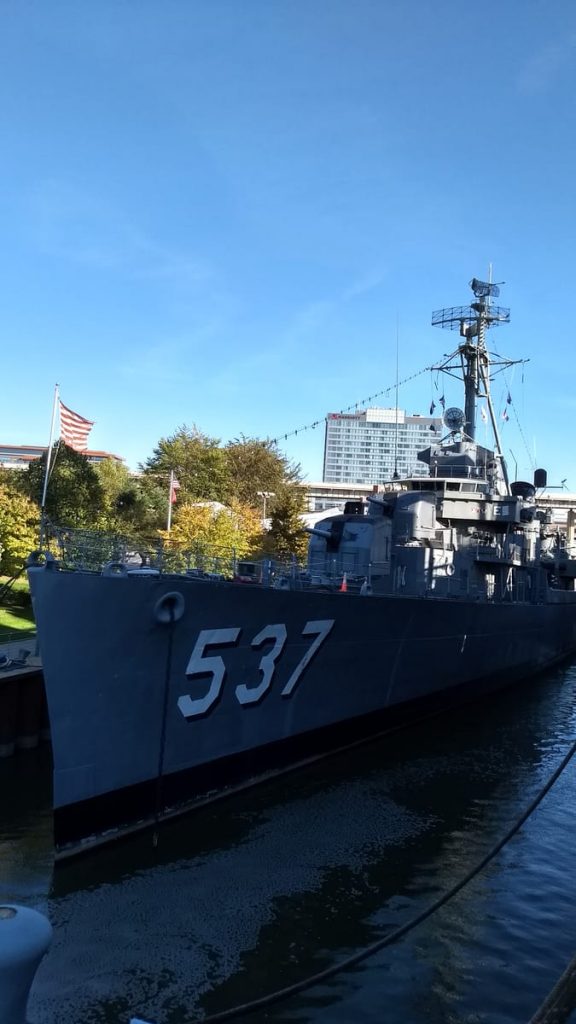
Is George Sullivan Haunting USS The Sullivans?
While no one can say how or why George Sullivan’s ghost came to reside on a ship he never served on, those who have encountered him say he is surveying the ship to make sure it is always up to the standards of a Sullivan memorial.
But, beyond his shadowy patrols, George’s supposed ghost is said to manifest through the electrical systems of the ship. Tourists often report radio equipment coming on by itself, often only to broadcast a strange, garbled static.
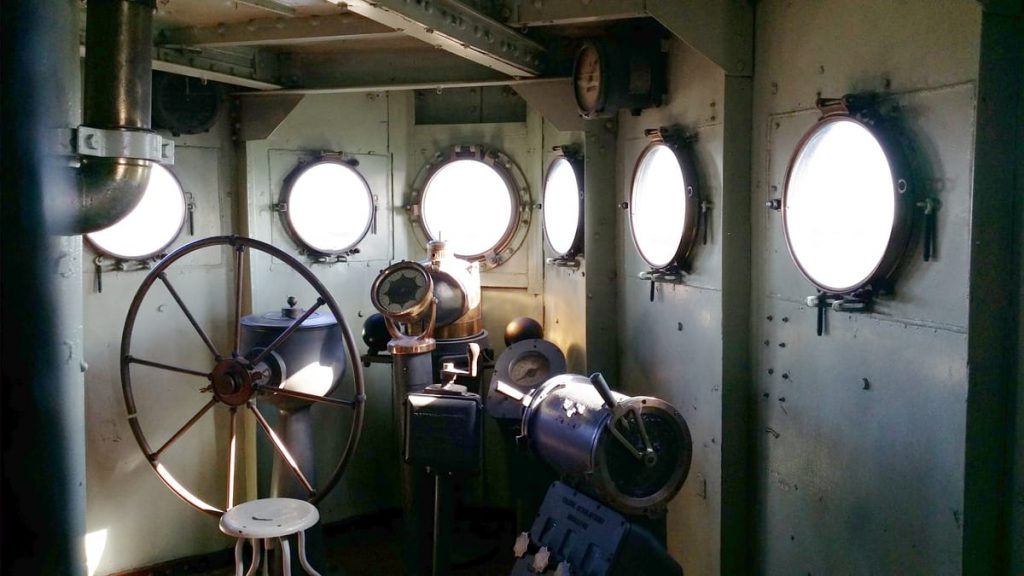
USS The Sullivans’ Equipment Enigmas
Other times, tour guides will find the ship’s equipment activated with no explanation, and oftentimes the equipment isn’t operable by tourists or laypeople, as it would require foreknowledge of how to operate. And, while tourists don’t have the knowledge to run the ship, many posit that George’s ghost certainly does.
So, while the ship isn’t likely to move anywhere from the place it has been for decades, the spirit on board seems interested in keeping it as battle ready as possible.




